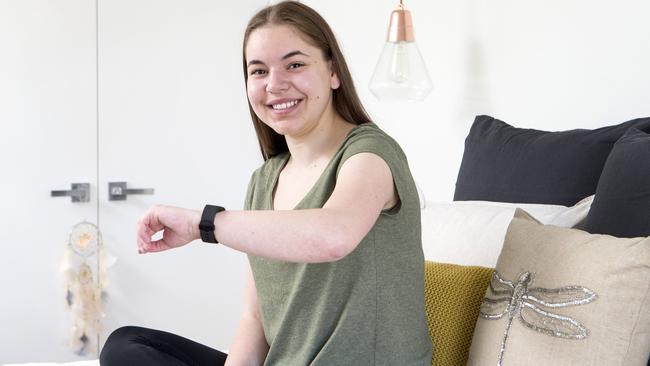Children with cystic fibrosis suffering more sleepless nights
PRESCRIBING sleep could become a routine part of treatment plans for children and teenagers suffering from a common inherited disease.

VIC News
Don't miss out on the headlines from VIC News. Followed categories will be added to My News.
PRESCRIBING sleep could become a routine part of treatment plans for children and teenagers suffering from a common inherited disease.
A world-first study by Monash University using a wristwatch to monitor sleep habits has given an insight into the problems young people with cystic fibrosis face when it comes to getting adequate amounts of shut-eye.
Even when their disease is stable, the youngsters still get less sleep than their healthy counterparts, leading to a poorer quality of life.
Monash University’s Professor Rosemary Horne said their findings could lead to doctors taking sleep into account when developing treatments plans for patients.
Plans could include discussing sleep with families, altering medication schedules to limit waking overnight, improving pain management, setting earlier bedtimes, and limiting screen time before bed.
“Sleep is important for everyone, but particularly children,” Prof Horne said.
“If they have poor sleep during the night, they have worse outcomes in the day. They can’t pay attention in school, they feel tired, grumpy and it can be very disruptive.”

Research by Dr Moya Vandeleur, a paediatric respiratory and sleep specialist, found even though children with CF spent the same amount of time in bed as those without the disease, they were awake more often. Using wristwatches that detect movement, they monitored 87 Victorian children with CF and 55 healthy children over a two-week period.
Prof Horne said it wasn’t always their treatment regimes affecting their sleep patterns, rather aspects of their family environment, using electronic devices before bedtime, as well as their lung health. “There is some evidence (improving sleep) could enhance their response to treatment and lung function,” she said.
Study participant Caitlin Magagna, 17, who has cystic fibrosis, is to have her sleep assessed during her next hospital visit. Between the demands of year 12 and twice daily physiotherapy, she often only gets six to seven hours of sleep each night.
“About 50 per cent of the time I wake up in the night and I don’t really know why. I know from the study that my oxygen supply can drop and I get quite short of breath,” she said. “For the past few months, I feel like I’m always tired ... there have been a couple of times where I have fallen asleep in class or felt like I was on the verge of it.”


